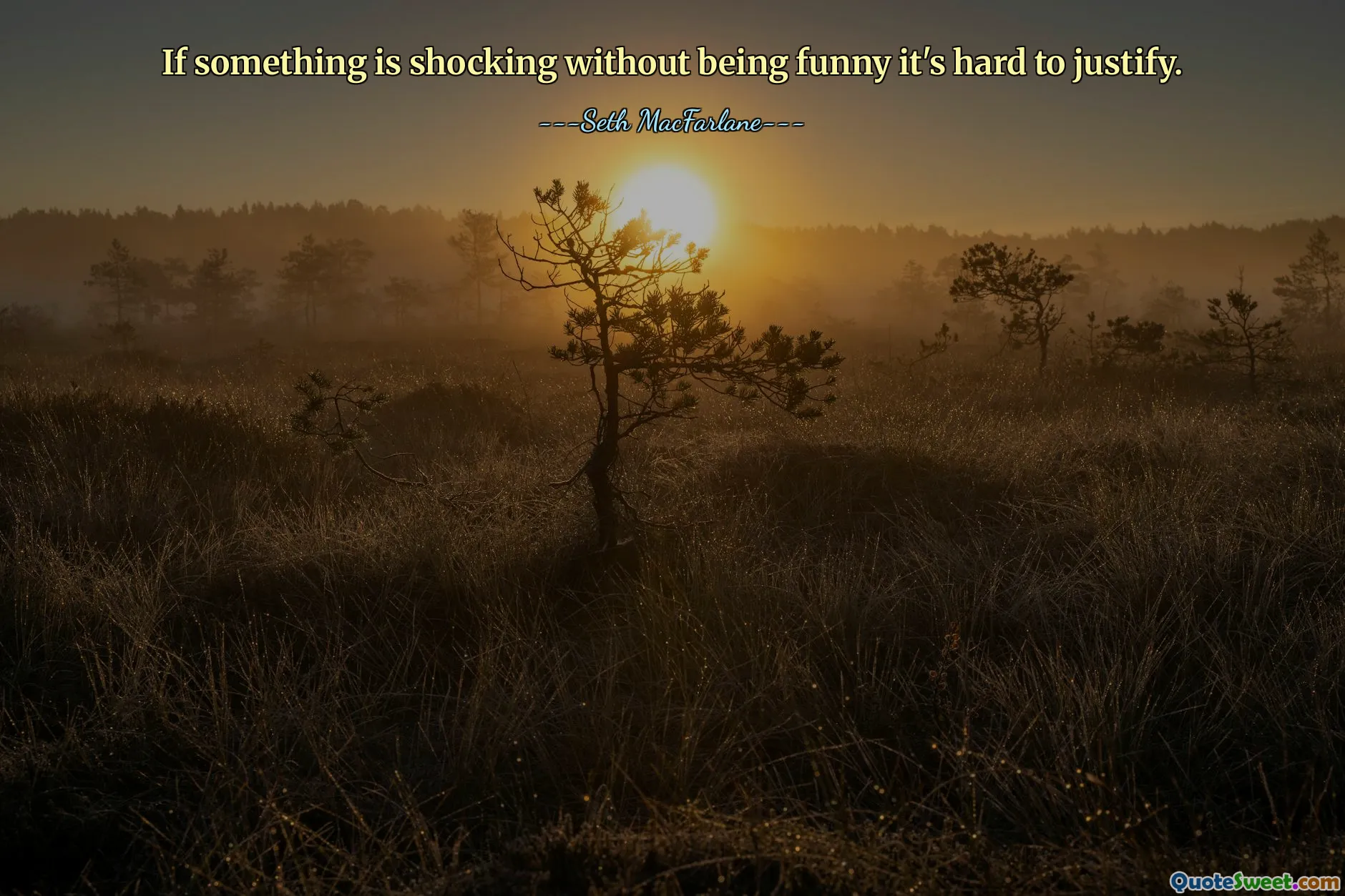
If something is shocking without being funny it's hard to justify.
This quote touches on the delicate balance between humor and shock value in entertainment and communication. When we consider any form of content—be it comedy, art, or even social commentary—the primary goal often revolves around eliciting a response from the audience. Humor, in particular, acts as a bridge, connecting individuals through shared laughter and understanding. However, when content is shocking without the comedic or meaningful context that makes it palatable, it can evoke discomfort, offense, or harm rather than thoughtful reflection.
The challenge lies in the justification for such shocking content. If it doesn't serve a purpose—be that to provoke critical thinking, highlight social issues, or foster connection—it risks crossing into the realm of gratuitous provocation. For example, a joke that is solely shocking without a humorous angle may appear as mere sensationalism, which most audiences find difficult to justify morally or ethically. Conversely, shocking content crafted thoughtfully can be powerful, such as using discomfort to spotlight injustices or to challenge societal norms.
Ultimately, this quote prompts us to reflect on the intent and effect of our communication. It suggests that shock is more justifiable when tied to humor or purpose; otherwise, it becomes harder to defend. This perspective encourages creators and consumers alike to consider the underlying message and the impact of their content. The goal should be to foster understanding, challenge norms, or generate meaningful discourse rather than simply shocking for shock's sake. This layered approach helps maintain integrity and fosters a more empathetic and critically engaged society.











